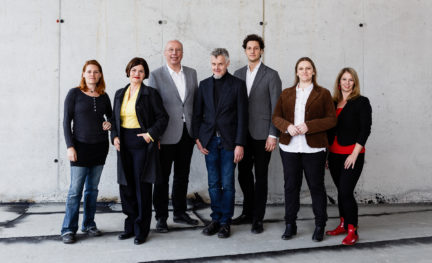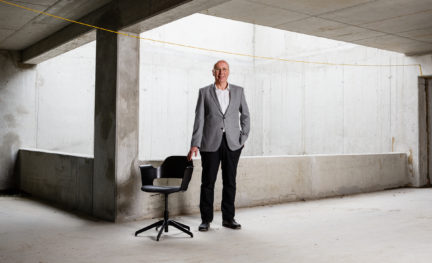
© Pletterbauer

© Pletterbauer
Short company profile: bauXund - build healthy!
"bauXund forschung und beratung", which translates "build healthy research and consulting" is a Vienna (Austria) based consulting company specialized on environmental and health topics related to sustainable construction issues in large-volume building construction. We have four key areas of work: Chemical and product management, investigation of pollutants in existing buildings, building certification and research projects.
One focus of the work is in the area of material ecology / construction chemistry. bauXund developed a methodology for avoiding the use of substances that are harmful to health and / or the environment for large-volume building construction more than 15 years ago with its "chemicals and product management" and has continuously refined it since then. Relevant pollutants include VOCs / organic solvents, plasticizers, HFCs, PVC plastic, biocides, heavy metals and allergenic substances in building products such as adhesives, paints, coatings, primers, insulation materials and floor coverings. This consulting starts with the formulation of ecological goals during the planning phase and their anchoring through the definition of criteria in the invitation to tender. It continues in the construction phase with product tests and approvals as well as on-site inspections and is concluded with indoor air measurements.
Since 2003 bauXund has successfully implemented "chemical and product management" in more than 800 construction projects in large-volume building construction (residential and non-residential buildings; new construction and renovation) throughout Austria on more than three million m² of floor space. In the process, bauXund was able to show that it is possible to reduce the use of organic solvents / VOCs by about 90 percent and thus massively reduce the pollution of indoor air.
bauXund has won several awards for its work, among others the European Indoor Hygiene Prize and twice the Austrian State Prize for Architecture and Sustainability (for building projects in Krems/Lower Austria and Graz/Styria).
Another of bauXund's fields of work is the investigation of pollutants in existing buildings. The current Federal Austrian Recycling Building Materials Ordinance (BGBl. No. 181/2015) stipulates for larger buildings (larger than 3500 m3 gross volume) that all pollutants contained in building materials from earlier decades, such as asbestos, PCBs, PAHs, wood preservatives such as PCP and H/CFC insulation boards and cooling agent applications, must be professionally removed from the building before demolition. The pollutant investigation offered by bauXund is fulfilling these legal prerequisites. bauXund further supports the client and the demolition company by means of an additionally commissioned deconstruction supervision in order to implement the pollutant removal efficiently and comprehensively. This means that the construction materials used, which are then free of pollutants, can be recycled in the best possible way in the sense of "urban mining".
Building assessments (OeGNI, OeGNB, klimaaktiv) are another focus of our work, in which we advise clients on the various aspects of sustainable buildings, starting in the project development phase, and finishing with audit of the respective building after construction is concluded. In connection with this, the life cycle assessment and eco-balance of a building is prepared and optimized.
Last but not least, bauXund works on a broad spectrum of research projects whose topics range from various issues of building ecology and biology like avoiding indoor air pollution and using CO2-reduced concrete. Climate change adaptation and prevention are currently other research areas.


